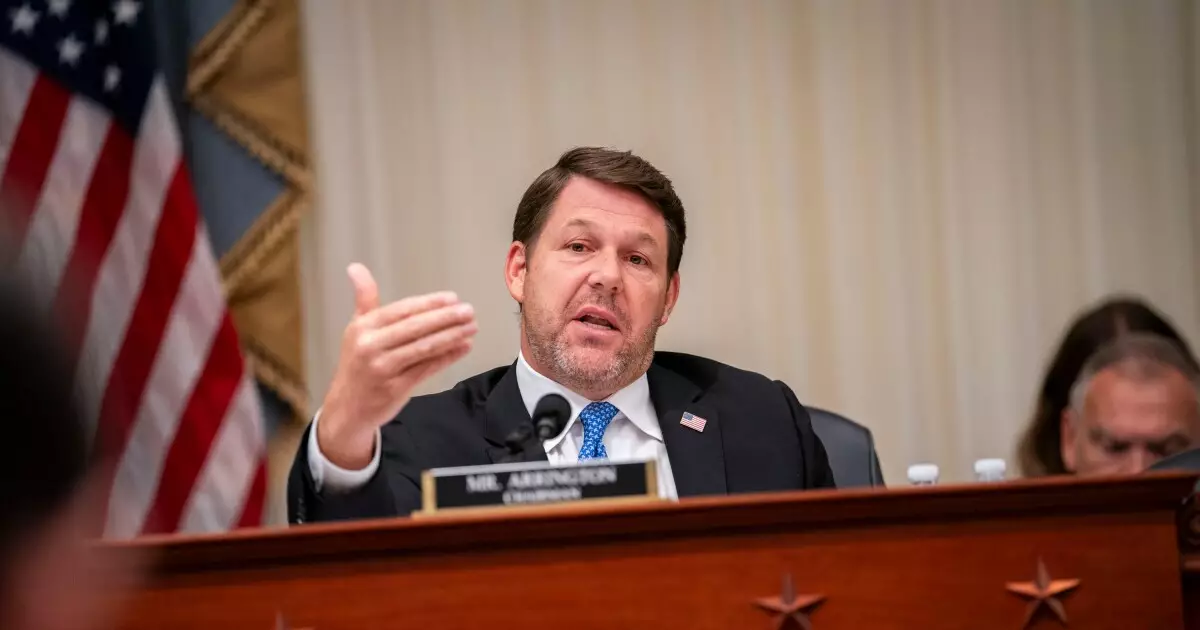As the U.S. House of Representatives prepares to engage with the Senate-passed budget resolution for fiscal 2025, the political landscape is fraught with tension and uncertainty. This budget has the potential to shape financial governance for years to come, yet it may very well be a misguided attempt that places far too much faith in flawed fiscal conservatism. In a moment when bold reforms are needed, a subdued tax bill is being positioned as a pathway to success, raising numerous red flags among those who advocate for a robust and sustainable financial structure.
Conservative Criticism and Institutional Backlash
From the outset, this Senate budget resolution faced immediate criticism from within its own party. Conservative lawmakers have rallied against what they deem a “watered-down” version, asserting that it does not adequately reflect the original intentions of the House. In an environment that demands fiscal prudence and accountability, a lukewarm budget resolution poses not only a diluted response to pressing economic issues but also raises questions about the conservative agenda’s integrity.
The House’s own budget blueprint, which advocates for substantial tax cuts and reductions in federal spending, starkly contrasts with the Senate’s measly $4 billion offset. This discrepancy speaks volumes about the lack of coherence and unity within the GOP—a party perpetually at war with itself. When fiscal conservatives express disappointment and assert that certain policy frameworks set “dangerous precedents,” those sentiments should not be brushed aside. It is a wake-up call that the party needs to reassess its priorities and gain clarity on its fiscal philosophy.
A Deteriorating Approach to Taxation
The crux of the Senate’s budget proposal is the perceived need to pass a tax bill that ostensibly amplifies Donald Trump’s legacy. Advocates claim that little will change for the average American taxpayer worrying about rising costs. Yet, proposing the extension of the Tax Cuts and Jobs Act (TCJA) without thorough and enforceable offsets is fiscal malpractice. Such disregard for accountability sets a dangerous precedent, positioning short-term gains over long-lasting economic stability.
There is significant danger inherent in the ambitions to extend tax cuts while allowing for a massive $2 trillion deficit increase over the next decade. The Bipartisan Policy Center has alarmingly suggested that this figure could swell to about $5.7 trillion when accounting for the actual costs associated with these proposed tax cuts. What happened to responsible budgeting? When did introducing substantial debt in discussions about fiscal stability become the norm for a party that claims to champion conservative values?
Debt Ceiling Dilemma: A Gateway to Financial Instability
In an alarming move, the Senate budget also proposes raising the debt ceiling by an unprecedented $5 trillion. This staggering sum is not just a number on a ledger; it is a reflection of a persistent culture of spending that seems to overlook the growing financial burdens placed on Americans. Speaker Mike Johnson’s plea for unity among Republicans currently rings hollow when one considers the lack of actionable commitment to curtailing rampant expenditures. A responsible party should strive for a balanced approach, prioritizing macroeconomic stability while championing taxpayers.
Dividing the party further, conservative lawmakers are voicing their opposition to what they see as an obligation to pass this measure as a matter of urgency. As the “X-date” for the debt ceiling looms, the pressure intensifies. But true fiscal leaders know that time-sensitive decisions rooted in fear are seldom wise. Leadership should be advocating for solutions that prioritize genuine financial responsibility over the illusion of expedience.
It is essential to challenge the status quo of what passes for adult conversations on fiscal policy. If conservative lawmakers wish to reclaim their narrative and restore trust with their base, they must insist on more than just a few superficial measures that promise tax relief. The future demands rigorous scrutiny of proposed budgets to ensure they align with foundational conservative principles—fiscal conservatism, accountability, and an unwavering commitment to curtail unreasonable debt. The stakes are high, yet the current trajectory sets a dangerous precedent that could imperil financial stability for generations to come.

